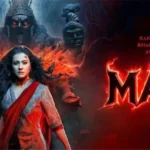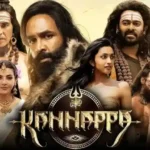The Hindi film Logout (2025) is a suspense-thriller directed by Amit Golani and written by Biswapati Sarkar. Presented by Viacom18 Studios and Posham Pa Pictures, it is produced by Sameer Saxena and Vipin Agnihotri. Released on OTT platforms on April 18, 2025, the movie has a runtime of 2 hours and 2 minutes.
Logout 2025 Movie Overview

| Movie Name | Logout 2025 Movie |
| Original Language | Hindi |
| Spoken Language | Hindi |
| Release Date | 18 April 2025 |
| Runtime | 2 hour and 02 minutes |
| Country | India |
| Genres | Suspense Thriller |
| Director | Amit Golani |
| Producer | Sameer Saxena Vipin Agnihotri |
Logout 2025 Movie Screenshot



Logout 2025 Movie Star Cast
| Actor | Role (Character Name) |
|---|---|
| Babil Khan | Pratyush Dua |
| Rasika Dugal | Pratyush’s Sister |
| Gandharv Dewan | JD |
| Nimisha Nair | Sakshi Kishore |
| Samvedna Sengar | Lady at Zenith floor |
Logout 2025 Movie Trailer
Logout 2025 Movie Review
Set in Delhi, Logout follows Pratyush, aka “Pratman,” a 26-year-old influencer obsessed with hitting 10 million followers to secure a lucrative brand deal. His rival, Ankita, is neck-and-neck in the race. After a night of drinking and a collaboration with Bhuvan Bam, Pratyush wakes to find his phone missing. A fan, Aabha, claims to have it but blackmails him, forcing him to share passwords and engage in a psychological game that exposes the fragility of his online persona and personal life. The story unfolds as a cat-and-mouse chase, mostly within Pratyush’s smart home, blending tech-thriller elements with emotional drama.
Babil Khan’s Performance: Khan is widely lauded for carrying the film, appearing in nearly every scene. His portrayal of Pratyush’s desperation, frustration, and vulnerability is compelling, with critics noting his ability to balance the character’s flaws and emotional depth. Some reviews highlight meta elements, as Khan, an influencer himself, critiques the culture he inhabits.
Relevant Themes: The film effectively captures the perils of social media addiction, digital identity theft, and parasocial relationships. Its depiction of influencer culture—clickbait, performative grief, and the chase for validation—resonates with Gen-Z and millennial audiences.







